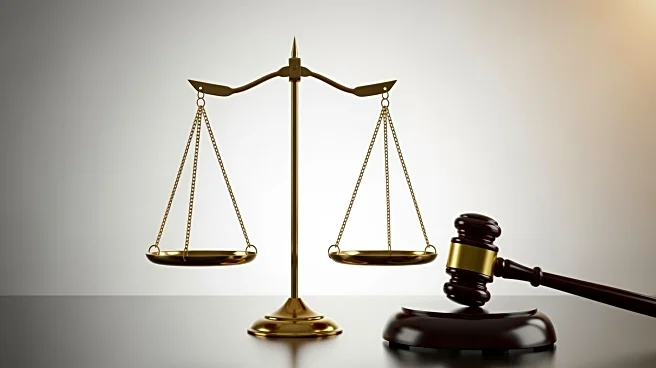What's Happening?
The Court of Appeal has ruled against the government's attempt to block a judicial review of the ban on Palestine Action, a group proscribed under terrorism laws. The decision allows the co-founder of Palestine Action, Huda
Ammori, to challenge the ban in the High Court. The ban, which took effect on July 5, criminalizes membership and support for the group. The Home Office has stated that it will consider the implications of the ruling, maintaining that Palestine Action remains a proscribed group. The judicial review is set to take place next month, providing an opportunity for the High Court to assess the legality of the ban.
Why It's Important?
This ruling is significant as it challenges the government's use of terrorism laws to ban activist groups, raising questions about the balance between national security and civil liberties. The outcome of the judicial review could set a precedent for how similar cases are handled in the future, potentially impacting other groups facing proscription. The decision also highlights the legal avenues available to contest government actions perceived as overreaching, emphasizing the role of the judiciary in safeguarding democratic principles.
What's Next?
The judicial review scheduled for next month will be a critical moment for both the government and Palestine Action. If the High Court rules in favor of the group, it could lead to the lifting of the ban and influence future government decisions on proscription. The case may also prompt discussions within Parliament about the processes and criteria for banning organizations under terrorism laws, potentially leading to legislative changes.











